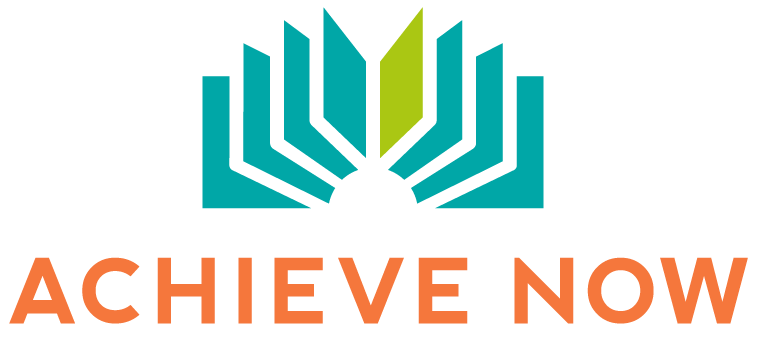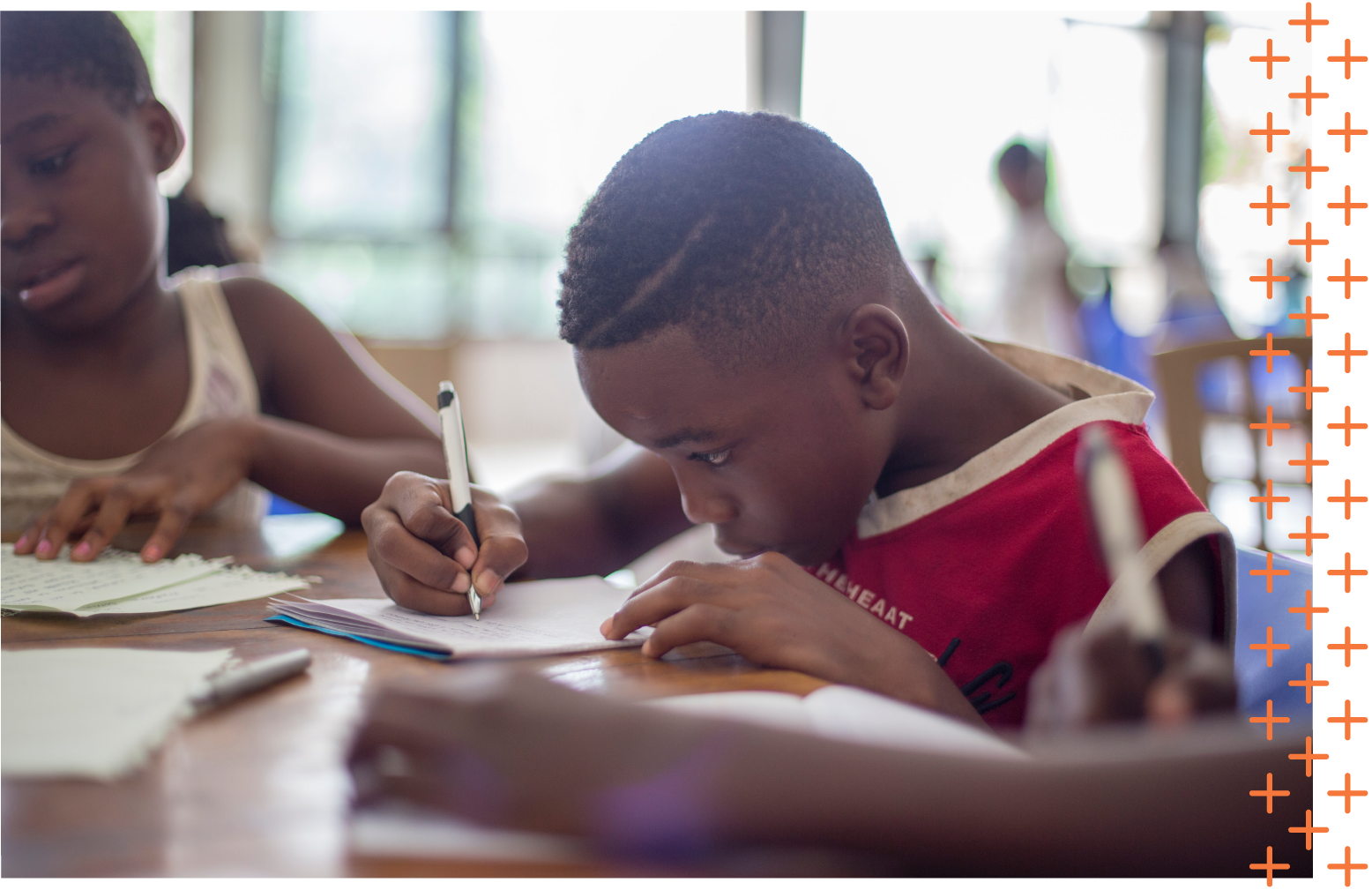Our Program Model
Achieve Now’s core programming possesses three features shown to be most effective in accelerating student learning.
We use highest impact practices
A research team meticulously combed through the existing research to find the practices proven to accelerate early childhood literacy instruction. They found five practices proven to move the needle, organizing them into five “buckets.” Our program features the three most impactful of these buckets: “High-quality structured tutoring,” “Include families in the process,” and “Training adults to teach specific reading skills.”
160.8% Growth
High-quality Structured Tutoring programs work with students either one-on-one or in small groups. To qualify, they must possess a defined curriculum; a discrete set of materials; and provide sufficient tutor training. Tutoring programs matching these criteria average an impressive 19.3 months of growth over a full year's implementation (7.3 additional months of growth)
One-on-one or small group instruction ›
One-on one sessions see first or second graders paired with adult volunteers or older peer coaches remotely or at partner or school sites.
Small group instruction takes place in the classroom, where teachers or school staff deliver the program to groups of three or four students who are at the same reading level.
A clearly-defined curriculum ›
Our core curriculum features a sequence of 38 lessons, supplemented by a three-tiered set of pre-lessons designed to give lower readers the skills they need for success in our core curriculum.
The curriculum is systematic and explicit. It explicitly teaches students to link letters to sounds and blend the sounds to form words. It systematically builds and reviews skills, and then asks students to apply them to text. At the same time, it offers sufficient flexibility for us to differentiate instruction to suit each student’s particular needs.
Robust coaching materials ›
We provide coaches and students with all the materials they need to participate, including lesson books, student skillbooks, intervention materials and extension activities. All materials work in concert to maximize student learning.
25-30 hours of coaching each school year ›
Our goal is for every student in our program to receive at least 25 hours of coaching per year. Each week from mid-October to late May, each coach-student pair works together for a full hour; small groups meet 2-3 times per week in 20- or 30-minute increments.
170% Growth
Including families to support reading interventions at home is a powerful lever for improving reading achievement. Programs make greater impact when families are provided with knowledge and resources on specific activities and exercises they can do at home to help children develop their language and literacy skills. Students in programs that include families in the process enjoy more than 20 months of growth over a year’s implementation (8.4 months of additional growth).
Responsiveness to community ›
We distribute community engagement surveys that solicit input about which literacy supports are most valuable to families in the communities we serve. Listening to community experts, we align resources and supports with the needs they identify.
Provide families with knowledge ›
Each year, we prepare detailed interim and end-of-year progress reports for each student in our program. These provide clear, evidence-base context for each student’s status as a reader, empowering families to make informed decisions about their child’s education.
Access to resources ›
In response to community engagement surveys, Achieve Now partners with corporate sponsors and local nonprofits to acquire and distribute the resources and supports identified as most needed.
To support at-home literacy building, we prepare a curated list of free and low-cost local literacy supports and events in which their child can participate.
Activities and Exercises ›
We provide families with a comprehensive list of linked reading activities from a variety of online sources as well as handy videos featuring activities and exercises they can employ to teach and practice foundational literacy skills with emerging readers.
201.7% Growth
When students receive instruction that clarifies reading knowledge and provides explicit instruction in reading skills, they are able to master reading foundations. This requires that adult coaches are provided with the knowledge and resources needed to meet students’ specific needs. Students in programs that train adults to teach specific literacy skills see more than two full years of growth over a year’s implementation (12.2 months of additional growth).
Two-part initial training ›
The first part introduces coaches to our materials and gives them tools for maximizing the script, strategy use, gradual release of processes, and developing content mastery in students.
The second part gives coaches tools to create a more fertile learning environment, emphasizing student interaction, developing rapport, and instilling a growth mindset in students.
Interim tune-up ›
At mid-year, we identify the highest leverage coaching practice for the volunteers at each site based on the level of their students. With this in mind, we prepare and deliver a one-hour training specifically designed to build the skills that, when developed, will have the greatest positive impact for that group of students.
Ongoing support ›
Achieve Now reading specialists attend all weekly one-on-one coaching session and regularly observe daily small group sessions. During each visit, we provide careful guidance, share coaching tips and tools and suggest effective strategies.
Structured Feedback loop ›
Before and after one-on-one coaching sessions, our team offers coaches feedback and communicates action plans for student progress. At small group sites, feedback and student instructional plans are communicated during bi-weekly meetings with school staff.
What we provide
Multiple program models and levels of support, allowing partners to select programming plans that align with their particular needs and available resources.
Regular observation of daily small group coaching sessions accompanied by bi-weekly meetings to offer feedback and present impactful action plans.
Remote or in-person coaching options for maximum responsiveness to instructional demand and partner capacity.
Differentiated instruction so that each student follows a curated, targeted instructional plan designed to maximize growth.
Management of all logistical details including transportation, session schedules, coach-student pairings, seating charts, and inventory upkeep.
Precise 1-on-1 interventions from senior members of our instructional team for students most in need of additional supports.
Comprehensive training of volunteer coaches to ensure confident program delivery, optimal instruction, and maximum student understanding.
Careful guidance during weekly one-on-one sessions to deliver coaching tools and share effective strategies for navigating student struggles.
Rigorous checks after every lesson to confirm student mastery over each of the program's critical literacy components.
Meticulous tracking of student progress during each session and over the course of the school year.
















